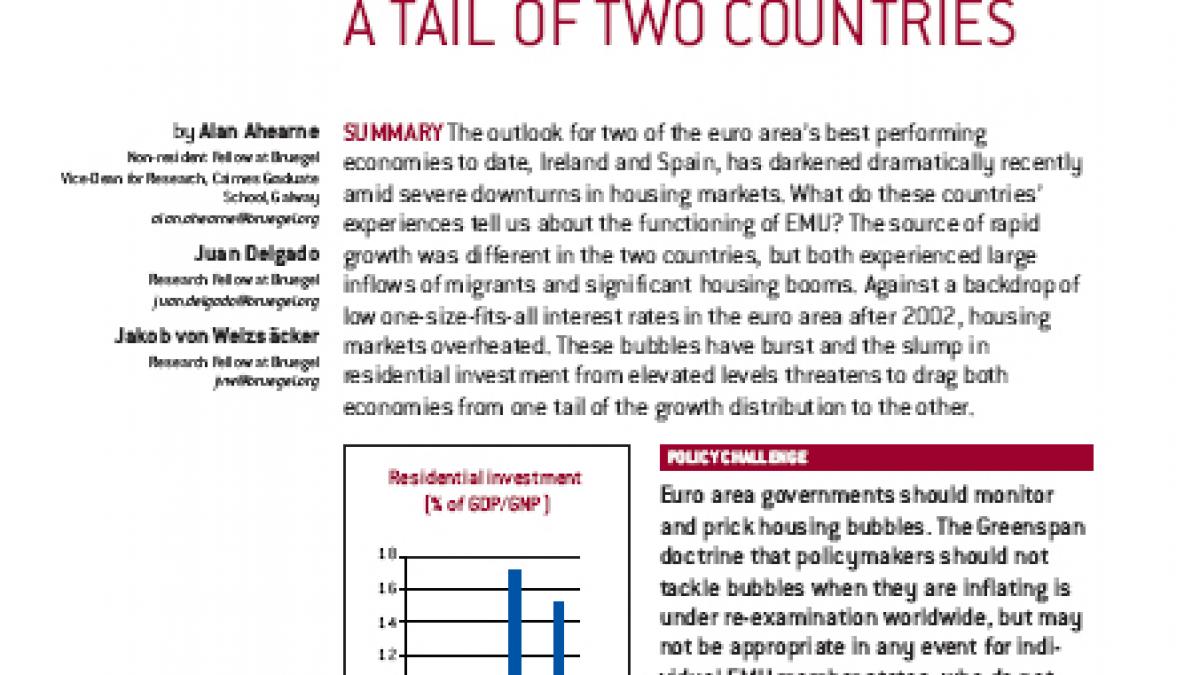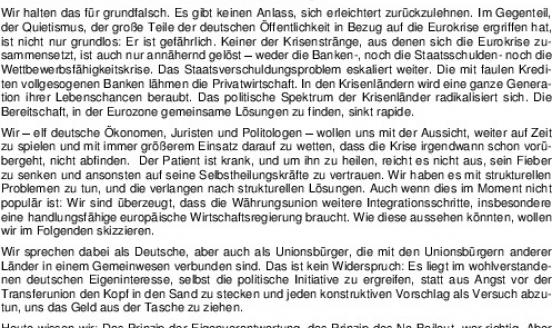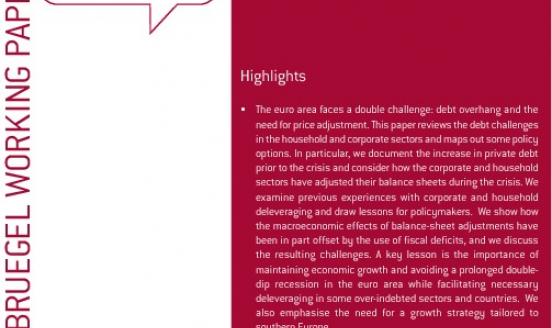Policy brief
A tail of two countries

The outlook for two of the euro areas best performing economies to date, Ireland and Spain, has darkened dramatically recently amid severe downturns in housing markets. What do these countries experiences tell us about the functioning of EMU?
Bruegels new policy brief A Tail of Two Countries examines the behaviour of housing markets in Ireland and Spain during EMU and considers what features and policies may have facilitated the overheating of housing markets in these countries. It also discusses the role of large migration flows in spurring growth in housing.

